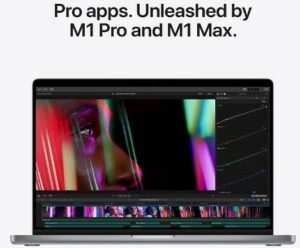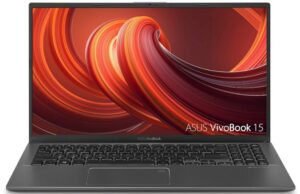Computer science has been booming for years and is in high demand among computer science students. The computer science job market is expected to grow twice the rate of other jobs. It means that computer science institutes will have more opportunities than ever before!
But which laptop should computer science students use? With so many options, choosing which is best for you cannot be easy.
In this blog post, we’ll discuss some of the best laptops for computer science majors to help you discover what you need and why.
When choosing a computer science laptop, you will want to consider portability. Although computer science requires extensive research, students often work outside the classroom, so you need something that can withstand all kinds of abuse!
The best laptops for large computer science companies will be durable enough to handle everyday wear and tear and easy to carry on campus.
That means finding something heavier but harder, such as a MacBook Air or Pro, Chromebooks, or even gaming laptops.
CPU
Your computer’s central processing unit, or CPU, serves as the machine’s brain. It is responsible for all the hard work, so you need something that can handle complex tasks.
We recommend at least one Intel Core I series processor for computer science students. Some of the best laptops for big computer science companies will have advanced CPUs like those found in MacBook Pros or Dell XPS.
GPU
A good graphics card is important for any laptop, especially if you are studying computer science. Many computer science courses require heavy gaming or video editing as part of the curriculum.
Fortunately, most gaming laptops come with a great pre-installed GPU. If you do not want to buy a new laptop, however, you can always buy an external graphics card to enhance the performance of your computer.
Ram
Random-access memory, or RAM, allows your computer to run multiple programs at once without slowing down. The better your computer performs, the more RAM it has. We recommend at least 16GB of RAM for large computer science organizations. Some advanced laptops will have up to 32 GB!
Storage
All the data you are collecting needs to be somewhere! When choosing a laptop for computer science students, ensure you have enough storage space.
You should find at least 256GB of storage. If you are a computer science major with a serious habit of data crunching, 256GB may not be enough, and we recommend getting an external hard drive (with cloud access).
Battery
A good battery is one of the most important features to look for in a computer science laptop. The best way to avoid frustration is to invest in a high-quality capo. Laptops with the best batteries will last at least 8 hours on a single charge.
Screen size
Screen size isn’t as important as some of the other factors we’ve mentioned, but it’s still something you’ll want to consider.
If you work too much outside of class, you may prefer a screen size of 17 inches or more. If you stick to most lectures and labs, 13 or 14 inches will work fine.
Operating system
Most computer science courses are designed to work with the Windows operating system.
However, if you prefer MacOS, we recommend purchasing Apple Computer through Boot Camp with Windows installed (this is a free piece of software that allows any computer to run multiple operating systems.
Here is are our favorite choice for The Best Laptop for a CS Student:


1. Apple MacBook Pro
The new Apple MacBook Pro 13 inches is a lightweight and powerful Mac laptop that is perfect for students.
It comes with a new Apple M series CPU with an octa-core 5nm processor, the first attempt with Apple’s ARM architecture to make a 5-nanometer chip with eight cores.
Pros
- High quality, ultra high resolution, beautiful display 2560 × 1600, 227 PPI
- Lighter and thinner, keeping in mind the quality and resolution of the display.
- Due to the relatively fast flash storage (present in all models – closed early 2012, early 2013, late 2013, and mid-2014 lines) and current early 2015 models.
- The SSD module installed in a drive caddy enables more diverse upgrades (for late 2012 and early 2013 models)
- “Blade” is based on the upgradable PCIe (for late 2013 and later models), although there is less physical space for the module.
- Excellent battery life, in general (especially for “Mid-2014” and “Early 2015” models based on “Haswell” and “Broadwell”)
- Two (2) USB 3.0 ports
- Two (2) Thunderbolt or Thunderbolt 2 ports and one (1) HDMI port
- SDXC card reader
Cons
- Older, blurry applications are not updated.
- Slow scroll performance
- Slow integrated graphics (struggle to run high-resolution displays, especially on early models)
- Soldered RAM is in place; you can’t upgrade it at all after purchase
2. ASUS VivoBook 15
The ASUS VivoBook 15 is an entry-level laptop with the latest AMD Ryzen 7 processor, making it perfect for college students.
Processors are faster and more efficient than in previous generations. Thanks to their newly designed architecture, they can be packed in tight spaces with small transistors without burning or slowing down.
Pros
- Exquisite display with a thin bezel
- Fingerprint reader
- Lightweight, so easy to carry.
Cons
- A bit pricey
Final Thought
In this article, we learned how to get a laptop for computer science students. Thus, the best laptops for computer science students in resent are the ones that give them several features to work effectively in their desired field.
We’ve compiled the above list to meet your needs, so you don’t have to go through the research work yourself.
Whether you want a laptop with excellent graphics performance, long battery life, or superior features, we’ve covered it here! If you think there’s an interesting feature in our list that we’ve missed (or if you’re looking for some general advice), feel free to contact us in the comments below, and one of our experts would be happy to help.
Related article:
http://computerscpu.com/whats-the-best-laptop-for-learning-computer-programing/

